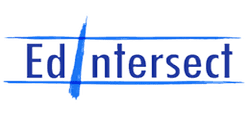
Plan International | Development of Inclusive Quality Education Indicators
October – December 2019
Plan International was undertaking work on a monitoring and evaluation framework, which had led to 15 indicators selected for molding into a set of inclusive quality education indicators for use by Plan’s programs in country offices globally. Plan sought the support of EdIntersect to review and refine the draft indicators, recognizing that Plan’s programming is concerned with social norms and thus has a strong interest in qualitative indicators rather than standard education indicators that may not often measure what Plan focuses on in their programming. The work Plan wanted to measure was taking place across 50 countries in Africa, Asia, and South America. Once the indicators were to be rolled out across the country offices, the indicators would require later support to country offices around the globe for implementation.
Drawing on sources both internal and external to Plan International, EdIntersect identified relevant technical documentation and guidance on criteria and methodologies for monitoring and assessing progress against 15 indicators from the matrix provided by Plan. In consultation with Plan colleagues in Woking (UK), Madrid, Geneva, and Washington, DC offices, EdIntersect reviewed and refined the indicators for inclusive quality education with the following guidance: outline resources required to use the suggested methodologies and tools, identify key approaches for improving the validity/reliability of data and critical considerations for measuring indicators, ensure the indicator matrix reflects global standards and best practices, and reduce the overall number of indicators in the framework, by identifying synergies and any duplication or overlaps within the indicator matrix.
For each of the 15 indicators selected from the draft indicator matrix, EdIntersect, together with Plan, identified primary and secondary data to be collected, and the tools and methodologies to be used to collect, analyze and manage this data, drawing on existing approaches and methodologies, tools and resources. EdIntersect provided a revised framework and indicator matrix, reflecting the development of the 15 indicators, and any other changes required.
